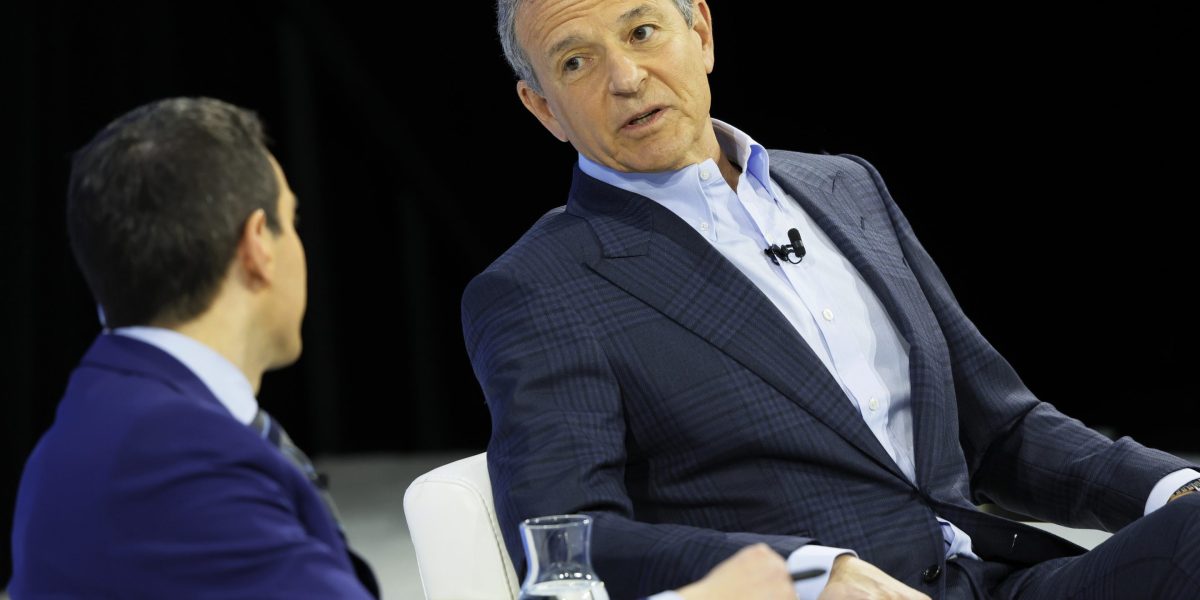Activist investors have sharper claws—and they want board seats
The Walt Disney showdown with Trian’s Nelson Peltz was the “second-wildest campaign” in 2024, according to a new report.


In the first half of the year, 449 U.S. companies were subject to demands from activist investors, a 9% jump compared to the first half last year. And hedge funds are taking swings at big targets. More than half the demands made to companies in the first half were at large-caps with market values of $10 billion and up. The figures will be published in a Diligent Market Intelligence report on Tuesday. The boardroom battles are generating significant media buzz, which can be time-consuming and distracting, especially at large companies where it might lead to CEO departures or strategic shifts. A 2023 study found that an activist on a board doubled the likelihood of a CEO exiting a company.
“This year, proxy contests have been big, front-page events, whereas in previous years they have taken place largely in the background,” said Stephanie Hill, head of index at Mellon Investments. Hill made her comments at the National Investor Relations Institute conference this year. “This means companies cannot ignore this space; there is the potential for an activist to target your company and make it onto the front page.”
Notably, the first half also saw the most expensive battle waged between an activist investor and a company in U.S. history. The grudge match between Nelson Peltz’s Trian Fund Management and Robert Iger’s Walt Disney Company rang up total bills estimated to be $65 million or higher. Trian at one point controlled 33 million Disney shares worth about $3 billion, a stake augmented by former Disney executive Isaac Perlmutter’s holdings. Perlmutter has a complicated past with Iger, which the entertainment giant has described as “fraught.” Peltz wanted board seats for himself and former Disney chief financial officer Jay Rasulo, and ran a campaign called “Restore the Magic.” Peltz and Rasulo criticized the board for failed CEO succession planning and decried Iger’s pay, valued at $32 million in 2023. Diligent called it the second “wildest” campaign in 2024, second only to a battle at railroad company Norfolk Southern.
Ultimately, Disney management defeated Peltz and reelected its full board slate—without the two activist nominees from Trian’s camp. But Peltz’s campaign can still be seen as a win, wrote Andrew Freedman, chair of the shareholder activism practice group at Olshan Frome Wolosky. Disney’s stock price rose about 50% as of the date of its annual investor meeting compared to a 2023 low of less than $84 a share, and the company bowed to several of Trian’s financial and operational demands.
“The campaign at Walt Disney highlighted a critical aspect of shareholder activism: even if an activist loses the election, it can still win the campaign,” said Olshan Frome’s vice chair Elizabeth Gonzalez-Sussman in the report. Plus, Peltz ultimately sold his stake and reportedly made $1 billion on the position.
Activist funds have gotten a boost due to an SEC rule change allowing investors to use what’s called a universal proxy card. The UPC lists all the board members nominated for election on a single card for investors to vote on, rather than separate cards for a company’s management and another for activist investors. The cards are now mandatory in all elections where there is an actual competition for board seats. The advent of UPC means investors can mix and match director candidates, raising the chances for an activist to get at least one of the board seats it’s vying for.
In addition to activist hedge funds, institutional investors like pension plans have been engaging companies like gangbusters. This year saw a record 349 shareholder proposals related to environmental or social issues voted on by investors at annual meetings—the highest in a decade. Shareholder-submitted proposals face an uphill battle compared to proposals pitched to investors from a company’s management, but still, six climate-related proposals got more than 40% vote support and 18 proposals related to political spending crossed the 30% threshold of investor support. Once a proposal gets the attention of a third of a company’s investor base, the board and CEO often pay attention.
This year was also the first time shareholders asked companies to be more transparent about artificial intelligence. Microsoft, Meta, Apple, Alphabet, Amazon, Netflix ,and Warner Bros. Discovery have either asked investors to vote on AI proposals or will later this year.
A shareholder proposal at Apple asking the company to tell investors more details about its AI ethics policies got 37.5% support from investors.





